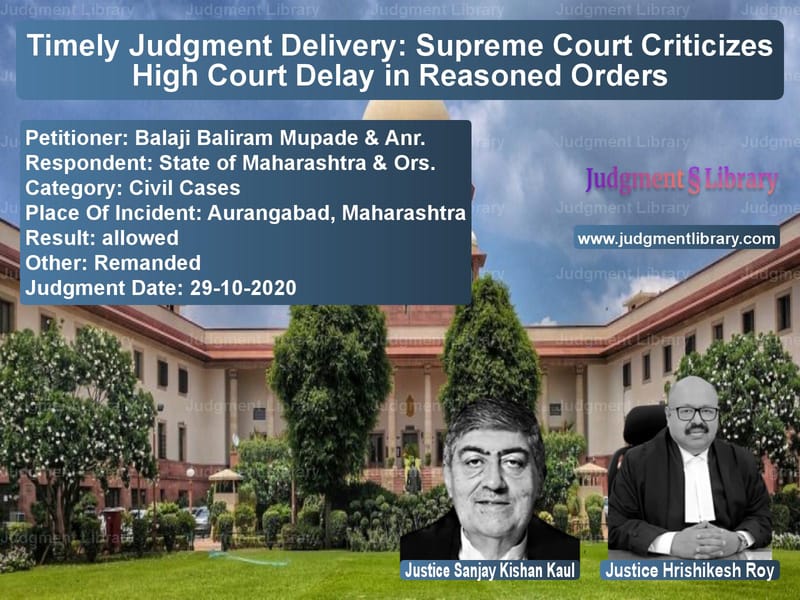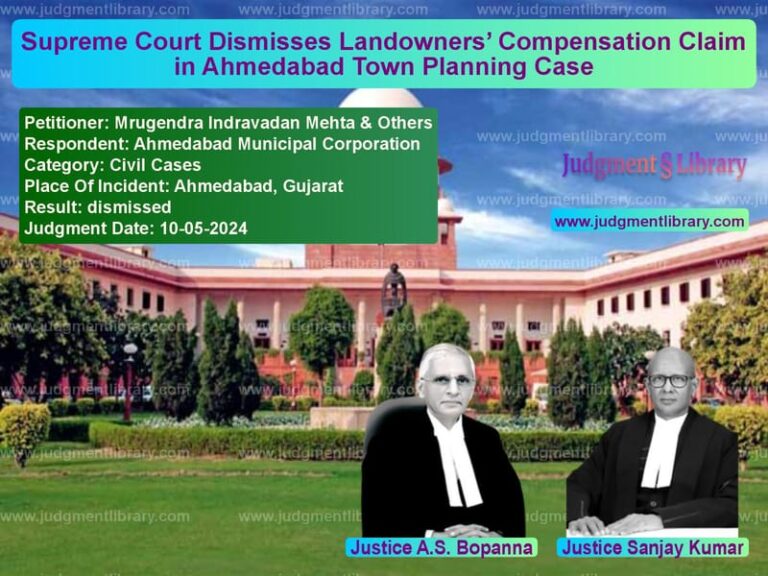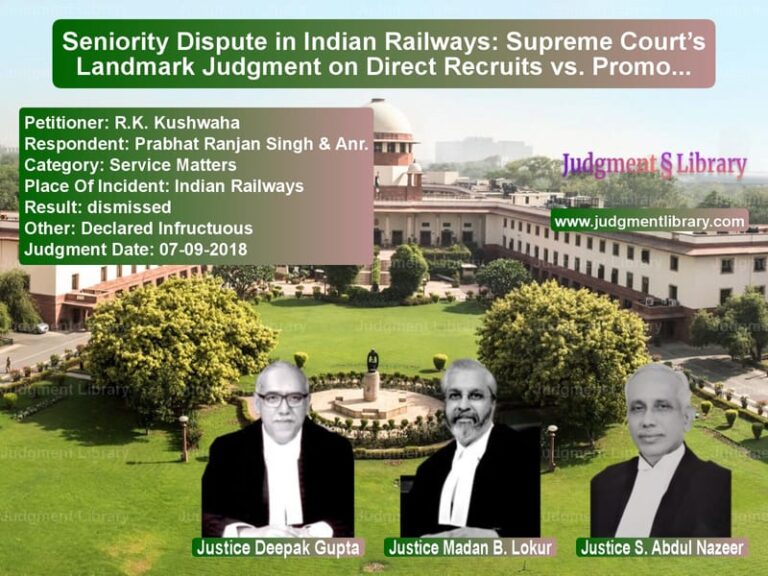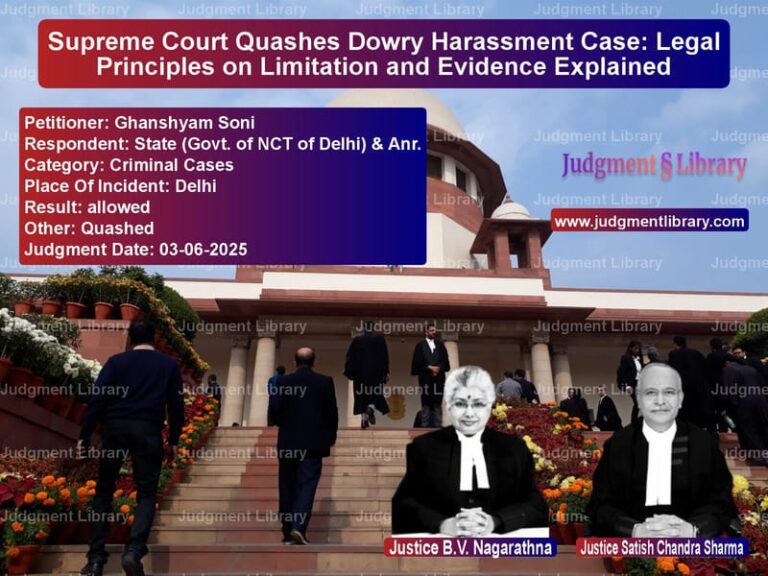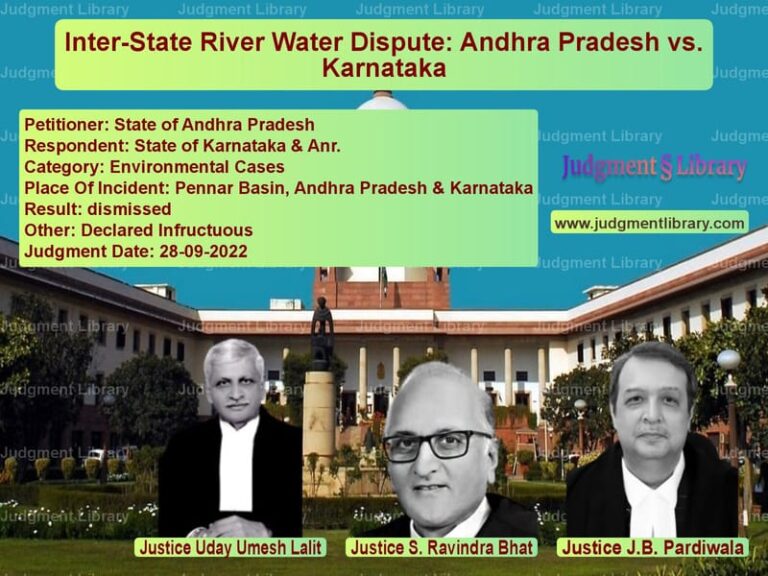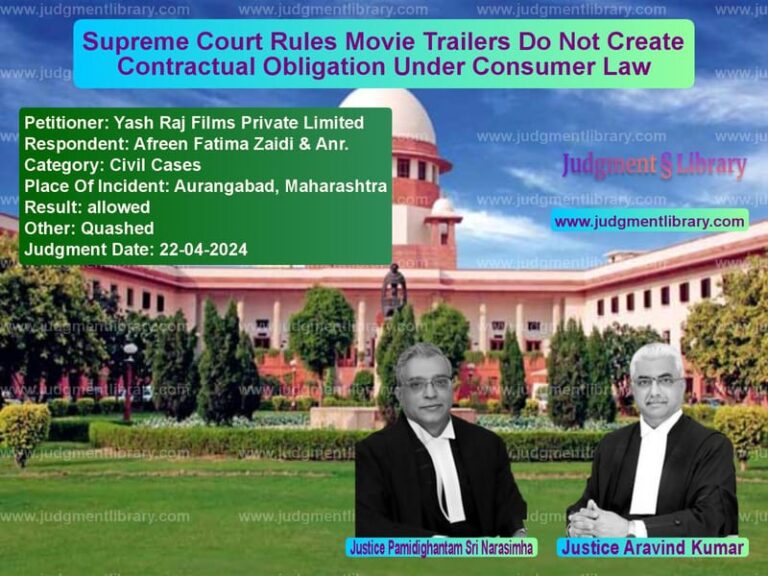Timely Judgment Delivery: Supreme Court Criticizes High Court Delay in Reasoned Orders
The case of Balaji Baliram Mupade & Anr. vs. State of Maharashtra & Ors. is a significant ruling that addresses the issue of delays in delivering reasoned judgments after pronouncing operative orders. The Supreme Court took serious note of the inefficiencies in the judicial system that prevent timely access to justice. This case highlights the importance of prompt and well-reasoned judgments to uphold the principles of fairness and due process.
The ruling sends a strong message to High Courts that they must adhere to the well-established norms of judicial discipline by ensuring that judgments are delivered promptly and not after excessive delays, as observed in this case.
Background of the Case
The Special Leave Petition (SLP) was filed against an order dated January 21, 2020, by the Aurangabad Bench of the Bombay High Court. However, the petitioners were placed in a precarious position because the High Court had only pronounced the operative part of the order but did not provide the reasons for its decision.
Key events in the case:
- January 21, 2020: The High Court pronounced the operative order dismissing the writ petition.
- March 2020: The petitioners filed an SLP before the Supreme Court challenging the order.
- October 7, 2020: The Supreme Court noted that the reasons for the order had still not been uploaded.
- October 9, 2020: The High Court finally uploaded the reasons, more than nine months after the pronouncement of the operative order.
Petitioner’s (Balaji Baliram Mupade & Anr.) Arguments
The petitioners contended that:
- The delayed delivery of the judgment deprived them of their right to appeal in a timely manner.
- The lack of reasons in the operative order prevented them from understanding the grounds on which their case was dismissed.
- Judicial discipline mandates that orders must be accompanied by reasons so that litigants can seek appropriate remedies.
- The delay violated their fundamental rights under Article 21 of the Constitution, which guarantees access to justice.
Respondent’s (State of Maharashtra & Ors.) Arguments
The respondents argued that:
- The reasons were eventually provided, and the petitioners had not suffered any substantial loss.
- The delay, while unfortunate, was not intentional and should not result in the entire order being set aside.
- The petitioners had other legal remedies available to them, and the delay did not infringe upon their fundamental rights.
Key Observations by the Supreme Court
The Supreme Court expressed deep concern over the manner in which the case was handled. The Court noted:
- Timely Reasoned Judgments are Essential: The Court reiterated that judgments must be delivered promptly and should not be excessively delayed after pronouncing the operative part.
- Violation of Fundamental Rights: The delay in providing reasons deprived the petitioners of their right to a fair appeal.
- Precedents Ignored: The Court cited its earlier ruling in Anil Rai v. State of Bihar (2001), which mandated that judgments must be delivered within two months of reserving them.
The Court quoted its observation in State of Punjab v. Jagdev Singh Talwandi (1984):
“Serious difficulties arise on account of the practice of pronouncing final orders without reasoned judgments. It is desirable that the final order should not be announced until a reasoned judgment is ready for pronouncement.”
Final Judgment
The Supreme Court ruled that:
- The impugned order of the High Court was set aside.
- The case was remitted back to the High Court for fresh consideration on merits.
- The matter would be assigned to a new Bench, ensuring fairness.
- A warning was issued to all High Courts to prevent similar delays in the future.
The Court also directed that a copy of the judgment be circulated to all High Courts as a reminder of their obligation to ensure timely justice.
Impact of the Judgment
This ruling reinforces the importance of judicial discipline and timely judgment delivery:
- Accountability: Judges must ensure that their decisions are accompanied by reasons without undue delays.
- Fair Access to Appeals: Litigants must be given a fair chance to challenge decisions, which requires prompt reasoning.
- Stronger Oversight: The Supreme Court will closely monitor instances where lower courts fail to adhere to established judicial timelines.
Conclusion
The Supreme Court’s decision in this case serves as a crucial reminder that justice delayed is justice denied. The ruling underscores the fundamental principle that courts must not only decide cases but must do so in a timely and reasoned manner. By setting aside the High Court’s delayed order, the Supreme Court has upheld the constitutional right to access justice and ensured that judicial discipline remains a top priority.
Petitioner Name: Balaji Baliram Mupade & Anr..Respondent Name: State of Maharashtra & Ors..Judgment By: Justice Sanjay Kishan Kaul, Justice Hrishikesh Roy.Place Of Incident: Aurangabad, Maharashtra.Judgment Date: 29-10-2020.
Don’t miss out on the full details! Download the complete judgment in PDF format below and gain valuable insights instantly!
Download Judgment: Balaji Baliram Mupad vs State of Maharashtra Supreme Court of India Judgment Dated 29-10-2020.pdf
Direct Downlaod Judgment: Direct downlaod this Judgment
See all petitions in Public Interest Litigation
See all petitions in Education Related Cases
See all petitions in Judgment by Sanjay Kishan Kaul
See all petitions in Judgment by Hrishikesh Roy
See all petitions in allowed
See all petitions in Remanded
See all petitions in supreme court of India judgments October 2020
See all petitions in 2020 judgments
See all posts in Civil Cases Category
See all allowed petitions in Civil Cases Category
See all Dismissed petitions in Civil Cases Category
See all partially allowed petitions in Civil Cases Category

